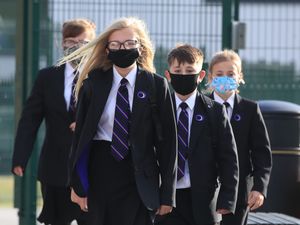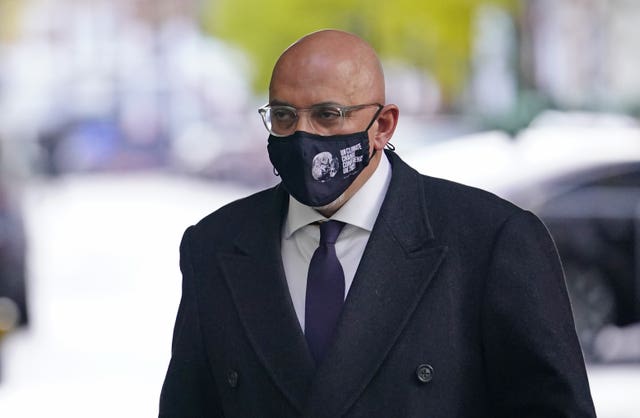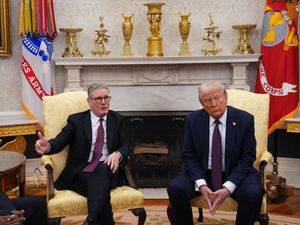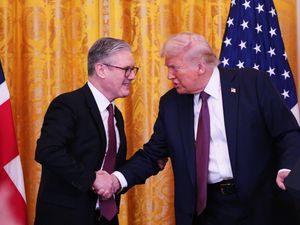Evidence on effectiveness of face masks in schools ‘inconclusive’, review finds
Pupils in secondary schools and colleges in England have been asked to wear face coverings in class due to a rise in Covid-19 cases.

Scientific studies on the impact of using face masks in schools to reduce the spread of Covid-19 are “not conclusive”, the Government has admitted.
An evidence review published by the Department for Education (DfE) found that studies have provided “mixed results” on the effectiveness of face coverings in education settings.
Taken together, the studies suggest face coverings in schools may contribute to reducing Covid-19 transmission, the analysis adds.
The findings have been published as pupils returned to school this week, with new advice for secondary school pupils and college students in England to wear face coverings in lessons due to a rise in Covid-19 cases.
On Wednesday, Education Secretary Nadhim Zahawi said face masks in school will “help reduce transmission at a time when rates of infection are high”.
He highlighted data from a sample of 123 schools which suggested “there was a greater reduction in Covid absence” among schools using face coverings in the autumn term than those where masks were not worn.
The DfE evidence review, which was published on Wednesday afternoon, included the results of the study.
Secondary schools where face coverings were used saw their average Covid-19 absence rate fall from 5.3% on October 1 to 3.0% on the third week of October – a drop of 2.3 percentage points.
In secondary schools that did not use face masks, the average Covid-19 absence rate fell from 5.3% to 3.6% – a fall of 1.7 percentage points.
But it concludes: “There is a level of statistical uncertainty around the result.”
The review acknowledges that the study carried out last term – which does not include any data on the Omicron variant – is “non-peer reviewed” and the greater reduction in absences could be down to chance.
Addressing MPs on Wednesday, Mr Zahawi admitted that the situation around face masks in schools was “not ideal” and possibly “distracting for children”.
He said the policy will be recommended “for the shortest possible time” and he hopes they will be able to be removed after a review of data on January 26.
The Education Secretary added that he has commissioned his department to research the impact of wearing masks on children.
A number of Conservative MPs raised questions over face masks in schools during the minister’s statement in the House of Commons.
Conservative former health minister Steve Brine said he was “puzzled” that children were being held to a different standard than the rest of the population.

He added: “I do not like the classroom mask mandate one little bit.”
Conservative MP for Wycombe Steve Baker said face coverings were “an especially harsh imposition on children”.
A DfE spokeswoman said: “We know children and young people want to be in the classroom as it is the very best place for their education and wellbeing, which is why face-to-face teaching continues to be an absolute priority.
“As part of a package of measures to help reduce transmission and disruption to learning and maximise attendance, we have temporarily advised that children and young people in year seven or above wear face coverings in the classroom.
“This decision was based on the latest scientific evidence and public health advice given current transmission rates of the Omicron variant, and we will review the advice on face coverings on January 26 and will not keep them in place a day longer than is necessary.”
Susan Hopkins, chief medical adviser to the UK Health Security Agency, said: “We support the Department for Education’s decision to reintroduce the use of face masks in secondary schools temporarily whilst Covid rates remain high.”





